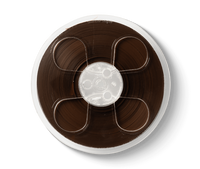
The Easiest Way
to Digitize Tapes,
Film & Photos
The Easiest Way to Digitize Tapes, Film & Photos
We send you a Legacybox with everything you need. Simply fill it and ship it back — we’ll digitize your memories and return the originals.

Prime Time Memories
$9 Tapes (Reg. $27.50)

Prime Time Memories
$9 Tapes (Reg. $27.50)
Digitize Your Home Movies & Photos
Every Legacybox includes a crushproof Legacybox, welcome guide with instructions, safety item barcodes, prepaid shipping label, professional hand-digitizing, and digital cloud delivery (FREE for 30-days).

Digitize Decades of Memories
Without Leaving Your House
So Easy, So Meaningful
The most important thing you can do for your family, in three easy steps.
So Easy, So Meaningful
The most important thing you can do for your family, in three easy steps.

1. Fill Your Legacybox

2. Digitized With Care

3. Relive, Laugh, Cry
Legacybox cloud
Stream from Anywhere
Relive your recorded moments from any screen, at any time. Easily cast to smart devices.
Sharing Made Simple
Download & Save
Easily Organize Your Files
Secure Storage

Legacybox cloud
Fill With Any Format

Tapes
Hi 8, Digital 8, 8mm Video Cassette, VHS, Micro MV, Mini-DV, Betamax, VHS-C
Tapes
Hi 8, Digital 8, 8mm Video Cassette, VHS, Micro MV, Mini-DV, Betamax, VHS-C

Audio
Reel to Reel, Audio Cassette, Micro-Cassette
Audio
Reel to Reel, Audio Cassette, Micro-Cassette
What's the Legacybox Difference?

Professionally Digitized
Every home movie and photo is hand-digitized right here in the USA.
Professionally Digitized
Every home movie and photo is hand-digitized right here in the USA.

Trusted by 1.5 Million
Legacybox is the world's largest digitizer of videotapes, films and photos.
Trusted by 1.5 Million
Legacybox is the world's largest digitizer of videotapes, films and photos.

Personalized Updates
Our tracking system sends real-time updates to you at every digitizing step.
Personalized Updates
Our tracking system sends real-time updates to you at every digitizing step.






























